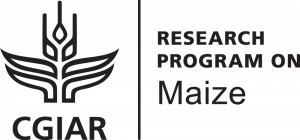STRESS-TOLERANT MAIZE,
 The CGIAR Research Program on Maize (MAIZE) is an international collaboration led by the International Maize and Wheat Improvement Center (CIMMYT) and the International Institute of Tropical Agriculture (IITA) that seeks to mobilize global resources in maize research for development to achieve greater impact on maize-based farming systems.
The CGIAR Research Program on Maize (MAIZE) is an international collaboration led by the International Maize and Wheat Improvement Center (CIMMYT) and the International Institute of Tropical Agriculture (IITA) that seeks to mobilize global resources in maize research for development to achieve greater impact on maize-based farming systems.
In 2019, MAIZE made great advances in the development of improved, stress-tolerant maize varieties with enhanced genetic gain, and novel genetic diversity and tools. National partners released 82 unique CGIAR-derived maize varieties across Africa, Asia and Latin America. In addition to high yield, these varieties are stacked with multiple traits needed by smallholder farmers to protect their crops from drought and diseases. These MAIZE varieties also included nine nutritionally enriched varieties with improved protein quality, provitamin A, and high zinc.
MAIZE and partners have continued the battle against fall armyworm in Africa and Asia on several fronts, including stakeholder workshops and capacity development on integrated pest management, besides intensive research on developing maize varieties with native genetic resistance to the pest.
From research on value chains and improved nutrition to conservation agriculture and scale-appropriate mechanization, MAIZE in 2019 continued to focus on sustainable intensification of maize-based cropping systems in Latin America, South Asia, and sub-Saharan Africa, where maize plays a critical role in the food and nutritional security and livelihoods of millions of resource-constrained consumers.
Partners and funders
The CGIAR Research Program on Maize (MAIZE) receives Windows 1 & 2 support from the governments of Australia, Belgium, Canada, China, France, India, Japan, Korea, Mexico, the Netherlands, New Zealand, Norway, Sweden, Switzerland, the United Kingdom, the United States, and the World Bank.